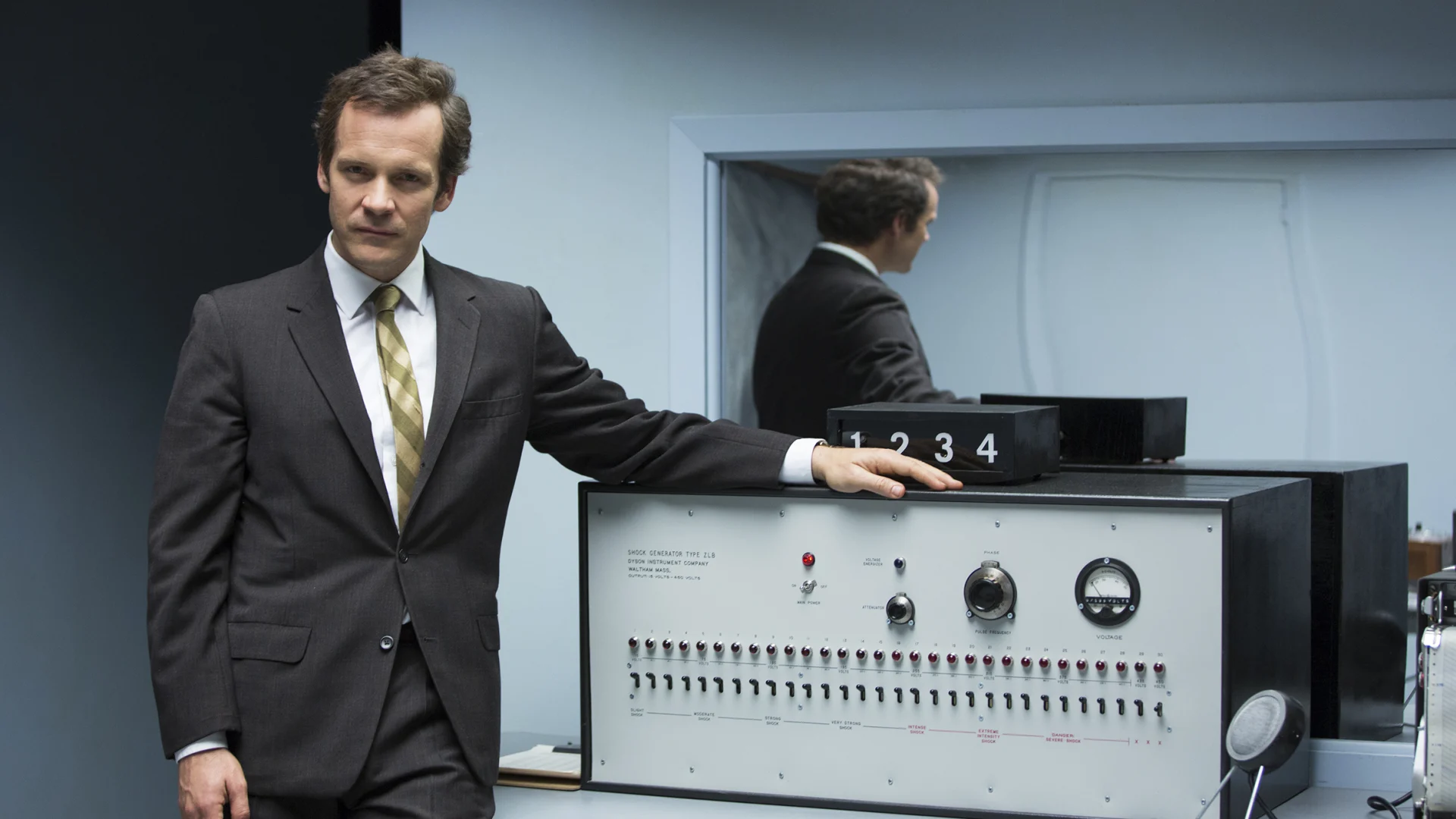Experimenter
Michael Almereyda
Playful, stylized biopic on the life and work of illustrious social psychologist Stanley Milgram, who caused quite a stir with his obedience experiments in 1961. He asked test subjects to administer electric shocks to strangers. A disturbing 65 per cent of the participants continued administering shocks up to a lethal voltage, just because they were ordered to do so.
Milgram’s obedience studies are among the most notorious and influential studies in the history of social psychology. Participants in the experiment took on the role of teachers and administered electric shocks to their pupils for giving a wrong answer. The investigations caused quite an uproar in the United States, and Milgram was accused of being a manipulative liar. In their extraordinary tribute to this scientist, the filmmakers themselves experiment as well, breaking a rule of cinematography by allowing their protagonist to sometimes speak directly to the camera. By doing this, they allow the viewer a glimpse into his thoughts and internal conflict of conscience. In addition to Milgram’s academic work, they also show the researcher’s private life.
Around the same time Milgram published his conclusions on human nature, the trial against Nazi war criminal Adolf Eichmann took place in Israel. As a
result, German philosopher Hannah Arendt published The Banality of Evil, on the ease with which ordinary people are capable of committing the most horrific acts. This conclusion caused Arendt, like Milgram, to come under severe public criticism. This film briefly discusses important historic events which are a telling sign of the times in which Milgram carried out his research.
Credits
- Director
- Michael Almereyda
- Year
- 2015
- Country of production
- United States
- Type
- Fiction
- Duration
- 98 minutes
- Spoken language
- English
- Subtitles
- NL
- Production company
- FJ Productions
- World Sales
- Bleiberg Entertainment
- Dutch distributor
- Amstelfilm
